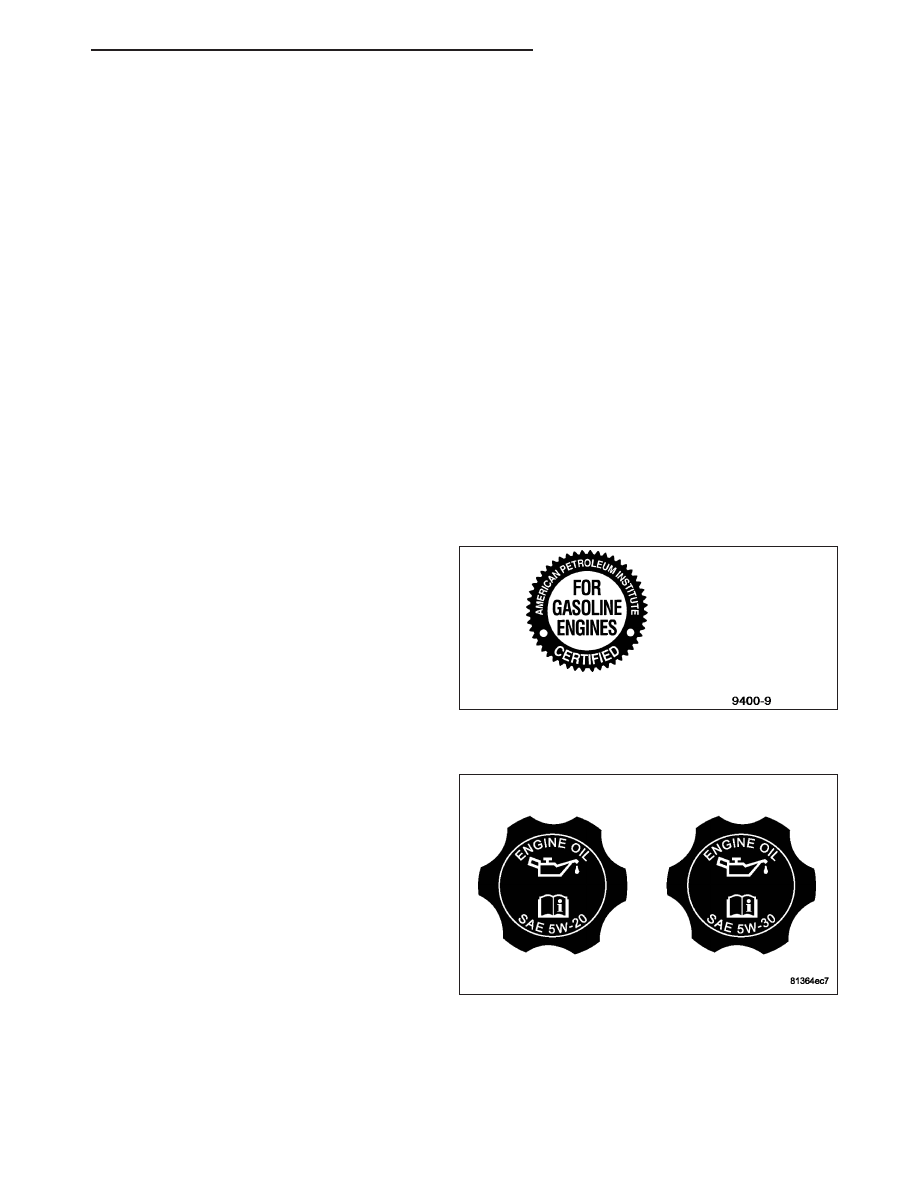Dodge Caliber. Manual - part 3

FLUID TYPES
DESCRIPTION
ENGINE OIL
WARNING: New or used engine oil can be irritating to the skin. Avoid prolonged or repeated skin contact
with engine oil. Contaminants in used engine oil, caused by internal combustion, can be hazardous to your
health. Thoroughly wash exposed skin with soap and water. Do not wash skin with gasoline, diesel fuel,
thinner, or solvents, health problems can result. Do not pollute, dispose of used engine oil properly. Contact
your dealer or government agency for location of collection center in your area.
When service is required, DaimlerChrysler Corporation recommends that only Mopar
T
brand parts, lubricants and
chemicals be used. Mopar
T
provides the best engineered products for servicing DaimlerChrysler Corporation vehi-
cles.
Only lubricants bearing designations defined by the following organization should be used.
•
Society of Automotive Engineers (SAE)
•
American Petroleum Institute (API)
•
National Lubricating Grease Institute (NLGI)
•
Association des Constructeurs Européens d’ Automobiles (European Automobile Manufacturers Association)
(ACEA)
API CERTIFICATION AND LICENSE SYMBOL
Use an engine oil that is API Certified and Licensed to
display the certification mark. MOPAR
T
provides
engine oils that meet or exceed, Material Standard
MS-6395 requirement.
SAE VISCOSITY
SAE 5W-20 and SAE 5W-30 engine oils are recom-
mended for all operating temperatures. These
engine oils are designed to improve low tempera-
ture starting and vehicle fuel economy. Refer to
the engine oil filler cap for the preferred engine oil
viscosity grade for each vehicle. SAE viscosity
grades are used to specify the correct viscosity oil for
an engine. Use only Multi-Viscosity oils such as SAE
5W-20 or 5W-30. These are specified with a dual SAE
viscosity grade which indicates the cold (5W) to hot
(20, 30) temperature performance range of the oil.
ACEA CATEGORIES
For countries that use the ACEA European Oil Categories for service fill oils, use engine oils that meet the require-
ments of ACEA A1/B1, A2/B2, or A3/B3.
PM
LUBRICATION & MAINTENANCE
0 - 3